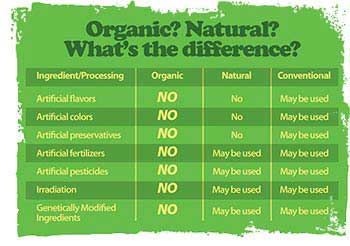Featured
- Get link
- X
- Other Apps
Organic vs Non-Organic Coffee: What’s the Difference?
Organic vs Non-Organic Coffee: What’s the Difference?
As coffee lovers, we often find ourselves choosing between various blends, roasts, and brewing methods. But one significant factor that can influence both flavor and ethical considerations is whether our coffee is organic or non-organic. Understanding the differences between these two categories of coffee can help you make informed decisions about what you’re putting in your cup. Here’s a closer look at organic versus non-organic coffee.
1. What Does Organic Coffee Mean?
Organic coffee is produced according to strict guidelines set by organizations such as the USDA (United States Department of Agriculture). To be certified organic, coffee must be grown without the use of synthetic fertilizers, pesticides, herbicides, or genetically modified organisms (GMOs). Instead, organic farmers use natural methods, such as composting, crop rotation, and beneficial insects, to maintain soil health and control pests.
Key Characteristics of Organic Coffee:
- No Synthetic Chemicals: Organic coffee is free from harmful chemicals, making it a safer choice for consumers and the environment.
- Sustainable Farming Practices: Many organic coffee farms emphasize sustainable practices, which can help preserve biodiversity and protect ecosystems.
- Higher Standards for Production: Organic certification involves rigorous standards for farming, processing, and handling, which can lead to higher-quality beans.
2. What About Non-Organic Coffee?
Non-organic coffee is produced using conventional agricultural methods, which may involve synthetic fertilizers, pesticides, and other chemical inputs. While this approach can lead to higher yields and more affordable prices, it raises concerns about environmental impact, health risks, and the long-term sustainability of coffee farming.
Key Characteristics of Non-Organic Coffee:
- Use of Chemicals: Non-organic coffee may be grown with synthetic pesticides and fertilizers, which can potentially have harmful effects on the environment and the health of farmworkers.
- Higher Yields: Conventional farming techniques often result in higher yields, allowing for a lower price point for consumers.
- Less Transparency: Non-organic coffee may not always disclose the farming practices used, making it harder for consumers to know the environmental or social impacts of their purchase.
3. Flavor Profiles and Quality
While some coffee drinkers believe that organic coffee tastes better, the flavor difference is not solely determined by the organic status. Factors like the coffee variety, growing conditions, and processing methods all play a significant role in flavor development. However, organic coffee is often praised for its unique flavor profiles, attributed to more traditional and sustainable farming methods.
Taste Considerations:
- Organic Coffee: Often described as having a cleaner and more vibrant taste, thanks to the absence of synthetic chemicals in the growing process.
- Non-Organic Coffee: May have a more robust and consistent flavor, but some consumers report that it can taste less nuanced due to the use of chemicals in farming.
4. Environmental and Ethical Considerations
Choosing organic coffee can have positive environmental and ethical implications. Organic farming practices promote biodiversity, conserve water, and reduce soil erosion. Additionally, many organic farms support fair trade practices, ensuring that farmers receive fair compensation for their labor.
Environmental Impact:
- Organic Coffee: Generally has a lower environmental impact due to sustainable practices and reduced chemical usage.
- Non-Organic Coffee: Conventional farming may contribute to environmental issues such as water contamination and loss of biodiversity.
5. Price Differences
Organic coffee often comes at a premium price due to the more labor-intensive farming practices and the costs associated with obtaining and maintaining organic certification. While some consumers may hesitate to spend more, many believe the benefits to health, environment, and quality make it worthwhile.
Conclusion
The choice between organic and non-organic coffee ultimately depends on your personal values, taste preferences, and budget. Organic coffee offers a range of benefits, including reduced chemical exposure, environmental sustainability, and potential for unique flavors. On the other hand, non-organic coffee may provide a more affordable option with consistent flavor profiles.
By understanding the differences between organic and non-organic coffee, you can make more informed choices that align with your values and enhance your coffee-drinking experience. Whether you prioritize sustainability, flavor, or price, there’s a perfect cup of coffee waiting for you!
- Get link
- X
- Other Apps
Popular Posts
AeroPress Original: The Ultimate Coffee Maker for Brewing Excellence
- Get link
- X
- Other Apps
Cappuccino vs Latte: Differences in Ingredients and Preparation
- Get link
- X
- Other Apps





Comments
Post a Comment